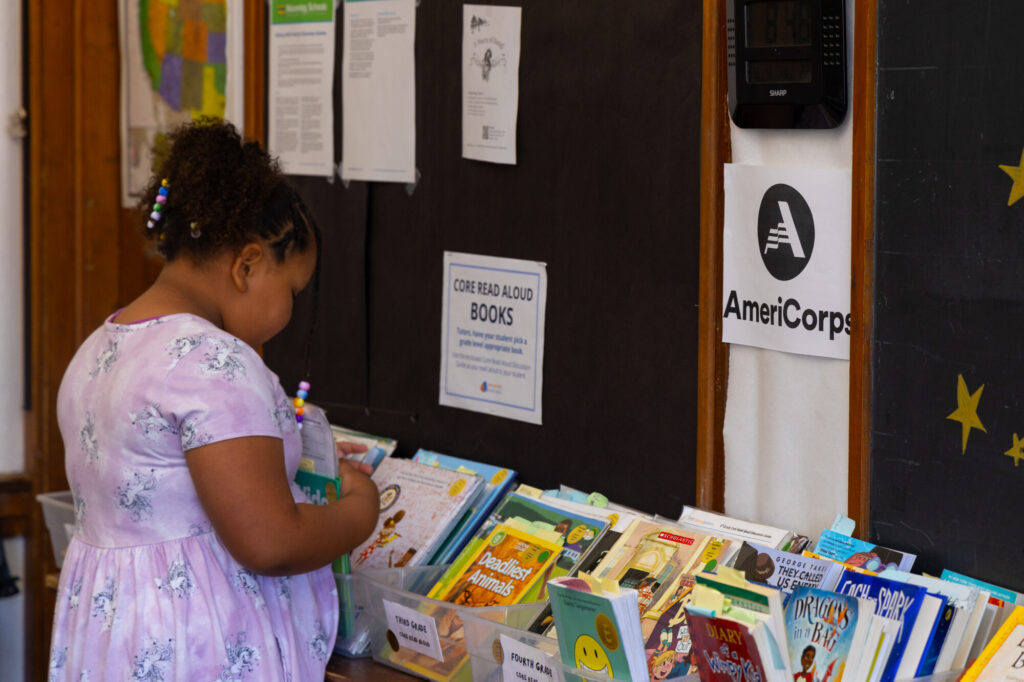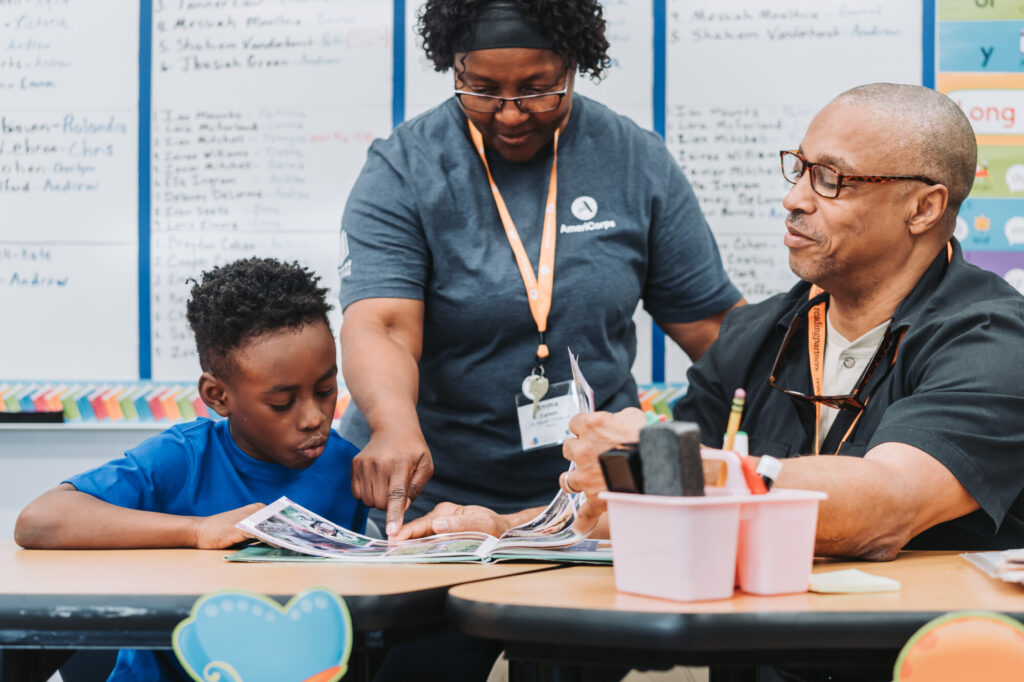
New five-year study affirms the strength of Reading Partners’ volunteer-based tutoring program
October 30, 2018
The premise of the Reading Partners program is simple: pair one student who struggles with reading with one volunteer tutor who delivers individualized reading instruction, and watch the student improve.
What seems like a simple model for volunteer-based tutoring, is really a well-formulated recipe for success to tackle the early literacy crisis in the US. With nearly four in five of our nation’s low-income fourth graders reading below grade level, proven interventions are in high demand for schools across the US.
Recent findings from a five-year study, “Expanding Opportunities to Successfully Support Early Readers,” conducted by Augenblick, Palaich, and Associates (APA), re-affirm the strength of Reading Partners’ program implementation and impact. Key findings outlined in the executive summary note:
Students who participated in Reading Partners during one school year had spring reading assessment scores that are significantly higher than the scores of similar students who do not participate in the program.
Evidence of proven impact on students’ literacy skill gain
Top-line results of the study found that Reading Partners was able to implement its program with fidelity in a new region, resulting in significant increases in the reading skills of participating students compared to a similar group of nonparticipants.
- Implemented with fidelity — Reading Partners was able to launch quickly, sustain, and implement its program with fidelity in a new region (Colorado). Students received an average of 32 tutoring sessions per year with students enrolling earlier in the year receiving more sessions.
- Proven impact — The study found that Reading Partners’ program had a positive and statistically significant impact on the literacy skills of students served by Reading Partners in Colorado (and particularly English Language Learners), based on assessments administered by teachers.
- Higher dosage is better — When comparing Reading Partners students to all comparison students, APA found a significant positive effect of each additional tutoring session (i.e., more tutoring is associated with stronger performance).
Focus on first- through third-grade students reading behind grade level
The five-year APA study, funded by Mile High United Way with a grant from the Social Innovation Fund, was initiated in the 2012-13 school year in Colorado. The study came to a close in 2016-17.
Participants included 698 Reading Partners Colorado students and 853 comparison students for a total sample size of 1,551 first to third grade students. Eighty-nine percent of the students in the study were eligible for free or reduced price lunch, 91 percent were non-white, and 47 percent qualified as English Language Learners (ELL).
The impact evaluation sought to answer four research questions:
- Does Reading Partners tutoring lead to improved near-term reading achievement for students in grades one through three when compared to similar students who do not receive tutoring?
- Do differences in reading achievement between students who receive Reading Partners tutoring and similar students who are not in Reading Partners increase as students receive more tutoring?
- Are there differential impacts of Reading Partners tutoring on different student groups, including English-language learners (ELL) vs. non-ELL students, boys vs girls, grade level, and different races?
- What is the effect of participation in Reading Partners for multiple years
Explore the findings:
Infographic providing a visual summary of the study
Volunteer-based tutoring meets the needs of students
In the 2018-19 school year alone, Reading Partners will engage and train more than 13,000 volunteers in more than 220 schools in 14 regions across the country. Volunteers will provide one-on-one tutoring for 11,000 low-income students in need of supplementary reading support. This is a wonderful start to narrowing the reading achievement gap in the US.
The secret sauce to Reading Partners’ program is in the evidence-based model which equips volunteers with the curriculum and resources they need to deliver high-quality reading instruction.
Reading Partners also collaborates closely with school leaders and teachers to integrate the program and its volunteers into the school community. A dedicated space on the school campus is transformed into a reading center and an on-site reading center coordinator ensures students and volunteer tutors stay on-track to reach their goals. The reading center becomes a hub for literacy growth and intervention.
What Reading Partners offers is not a revolutionary concept, it’s really a simple approach that works for students, families, and schools. Studies show, time and again, that the structured, individualized attention offered by Reading Partners’ volunteers helps students gain literacy skills.
To learn more about Reading Partners or to sign up to volunteer, please visit staging.readingpartners.org.




